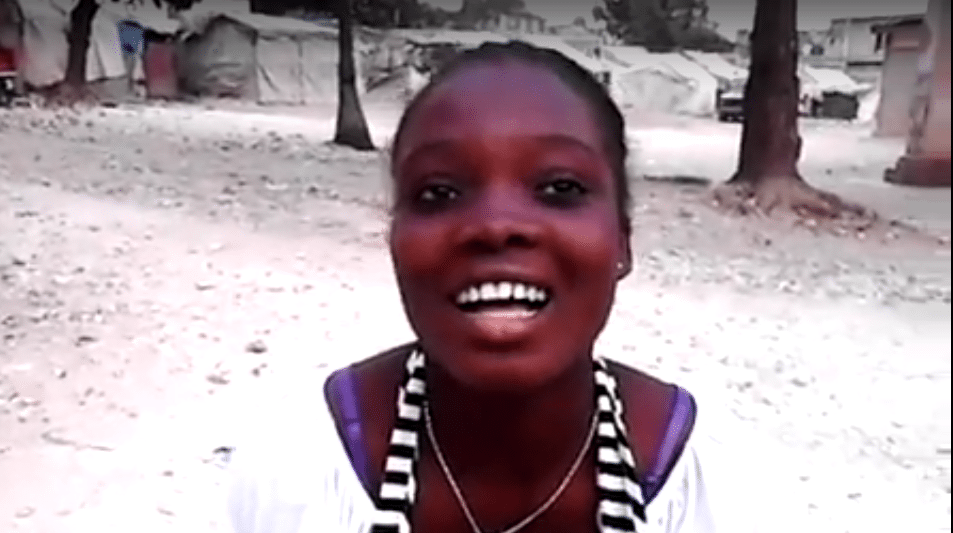Wismide from Port-au-Prince shares her experience of living close to one of the many refugee camps that has sheltered people since the earthquake.
Wismide Simms, 17
Port-au-Prince, Haiti
The 2010 earthquake in Haiti was catastrophic on all fronts. Now, three years later, the people of Haiti are still trying to pick up the pieces and are dealing with the tragic environmental and social impacts of the disaster. This week’s Let Girls Lead video blog comes from 17-year-old Wismide Simms, a girl resident of Port-au-Prince. Wismide shares her experience of living close to one of the many refugee camps that has sheltered people since the earthquake. In her video blog, Wismide explains that she and her friends were scared to go outside after the earthquake because girls were being raped. Girls in Haiti have been facing extreme cases of sexual violence and abuse due to the deterioration of infrastructure and economy since 2010.
One day Wismide met a group of girls that changed her life and attitude about her future. The girls were holding creative workshops only for girls in an effort to create a safe learning space for them and their peers. Wismide joined their collective, Jeune Ofeda, which offers reading, writing, poetry and dance workshops to girls in camps to facilitate their continued growth even in the most desperate of times. The workshops are geared towards improving girls’ self-esteem, teaching girls about their rights, and giving them access to education they would not otherwise get.
Since joining Jeune Ofenda, Wismide has a safe place to go and she is able to talk about her experiences living in post-earthquake Haiti. She encourages other girls to join the group as well and is an active leader in her community. She feels happy and lucky to have this group and wants to share it with other girls.
Wismide’s Story:
Bonsoir. My name is Wismide. I am 17 years old. I live close to the camp. After the earthquake I was afraid to go outside because so many girls in my neighborhood were being raped and violated by different men. I was scared and very unhappy when I heard girls talk about what happened to them. I did not risk to go outside because I did not want to be one of them. Because I live close to the camp, some of the girls from Jeune Ofeda asked me to join them, and not to be afraid. They told me how the group helped them. So I joined.
They have helped me to learn to read and to write. Also, we had different activities like dancing. Being a member I have a different mindset. I am around other teenage girls like myself. I am able to talk with them and share some of my stories without being judged. Even though sometimes we have our differences, we are able to work it out. It has been a great decision. I am very happy. That’s why I will encourage others to join a group like ours or with us. Thank you.
Let Girls Lead empowers girls and their allies to lead social change through advocacy, education, economic empowerment, storytelling and strategic partnerships, contributing to improved health, education and livelihoods for more than 3 million girls globally.
Let Girls Lead’s Global Girls’ Conversation video contest highlights girls’ power to create change by sharing their own solutions through short videos. The video contest is an exciting opportunity for girls, organizations working with girls and girls’ allies to submit one to two-minute videos capturing girls’ solutions and successes. In partnership with The Huffington Post, Let Girls Lead will continue to feature these compelling videos on the Global Girls’ Conversation interactive platform and on Huffington Post’s Global Motherhood column, sharing girls’ power to lead change with a global audience. Contest winners will receive $10,000 in cash, equipment and training to create their own short films.
Follow Let Girls Lead on Twitter: www.twitter.com/letgirlslead


